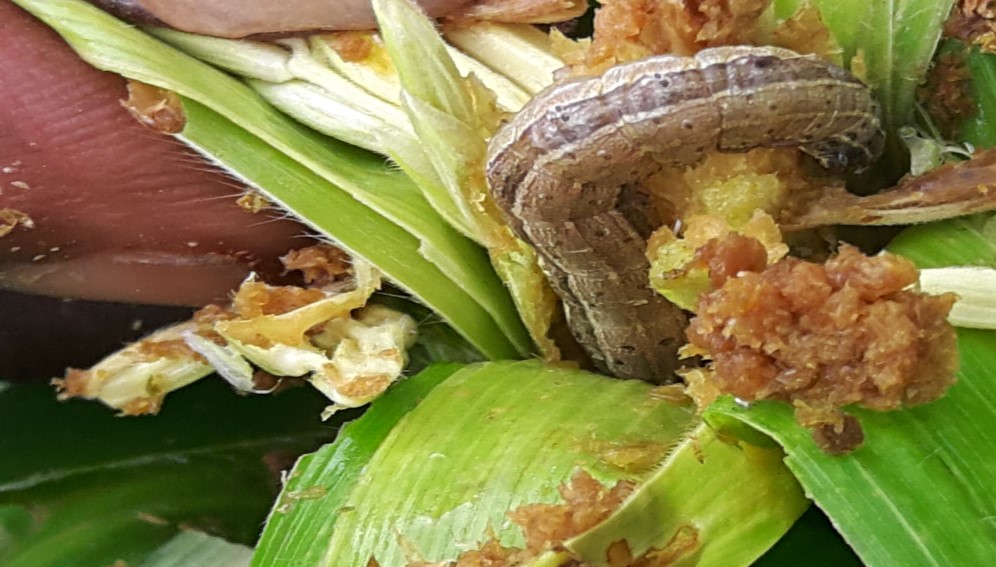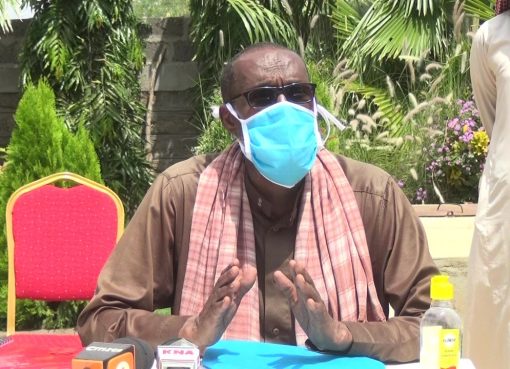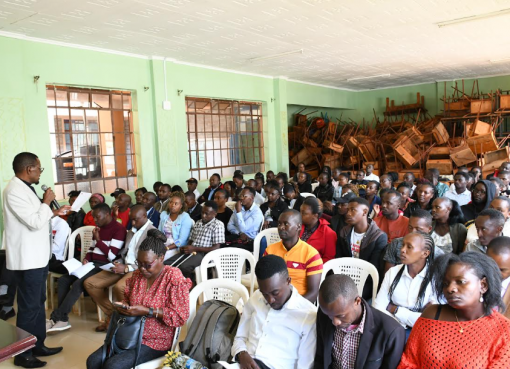Agricultural experts have raised an alarm over impending food insecurity following the invasion of farms by the African armyworm in most parts of Western and Rift Valley regions of Kenya.
Some of the areas under attack, according to experts are Busia, Bungoma, Trans-Nzoia and parts of Rift Valley, which are traditionally referred to as “Kenya’s Food Basket”
According to Ruth Wilhelm Mukhongo, an insects and soil expert working with the County Government of Busia, African armyworm is more lethal on crops, especially grass family and legumes than any other pest that experts can think of, including Fall armyworm.
Mukhongo disclosed to press that as a result of the worms’ devastating effects, there is an impending food insecurity in the country, if this situation is not contained, adding that the situation could complicate further the socio-economic fabrics of residents in affected regions.
She agrees that though the pinch of invasion will be felt across board, the most affected segment are the small holder farmers, who cannot afford chemicals to spray their farm against the worm and urges the government to provide the same to them.
Mukhongo, however, revealed that County Governments in affected areas, including Busia are working closely with the National Government through the Ministry of Agriculture on best ways forward to contain the deadly pest before the situation gets out of control.
“We have already received a considerable amount of pesticides that include Alpha and other brands of promotional pesticides from the National Government to spray invaded farms across Busia County at no cost,” reiterated Mukhongo.
She lauded Agri-chemical Association of Kenya for timely training of field officers whom she described as competent in spraying farms in the wake of such outbreaks of Africa armyworm invasions, adding that her department has put the field officers on a soldier alert to support when need arises.
The Busia County Minister (CEC) for Agriculture, Dr. Moses Osia, nonetheless, cautioned farmers to be vigilant and carry out daily spot-checks of their farms and report any unusual occurrence on their crops.
He appealed to farmers to collaborate with field officers for efficiency and up-to-date surveillance for rapid response.
However, the effects of climate contribute immensely to the rapid multiplication of Africa Army Worm, hence providing enabling environment for the pest predator to unleash havoc on farms.
In an exclusive interview with Africa Science News in her office in Busia, Mukhongo who is the Chief Officer, Department of Agriculture, confirmed that extreme (Dry and warm) weather is a predisposing factor for African armyworm to survive.
Mukhongo said this owes to the fact that farmers in Western Kenya planted their farm during hot season, thus giving the caterpillars fodder to invade farms, threatening not only food security, but economy in general.
Dr. Osia contented that so far there is no cause for alarm as the Department in collaboration with other stakeholders, are putting the best foot forward to manage the pest and assured farmers not to despair, but instead redouble their efforts to ensure food sufficiency.
So far, the Department of Agriculture has not collected sufficient data on the scope of invasion in terms of acreage, but challenged farmers to work in clusters for easy administration of spraying.
Mukhongo downplayed administration of traditional control methods of containing the worms and encouraged farmers to opt for the scientific approach of using certified chemical better results. Traditional ways include use of Ash, smashed liquid from leaves among others.
“We are upbeat that with onset of heavy rains in the region, the African Army Worm will disappear into the soil and the affected crops will resume normalcy for better yield,” concluded Mukhongo who at the same time challenged humanity against extreme activities that catalyse effects of climate change both locally and internationally.
By Absalom Namwalo





